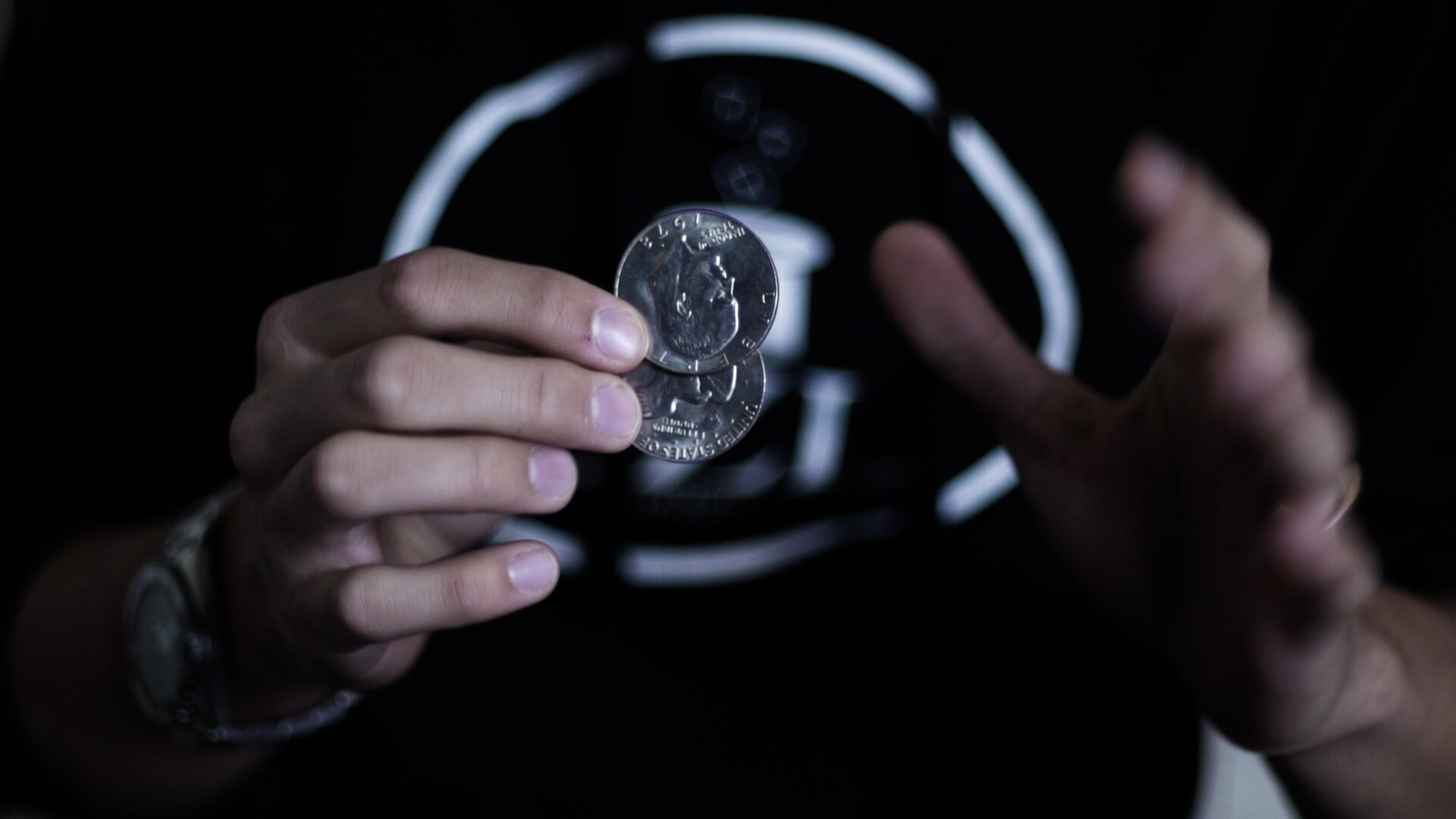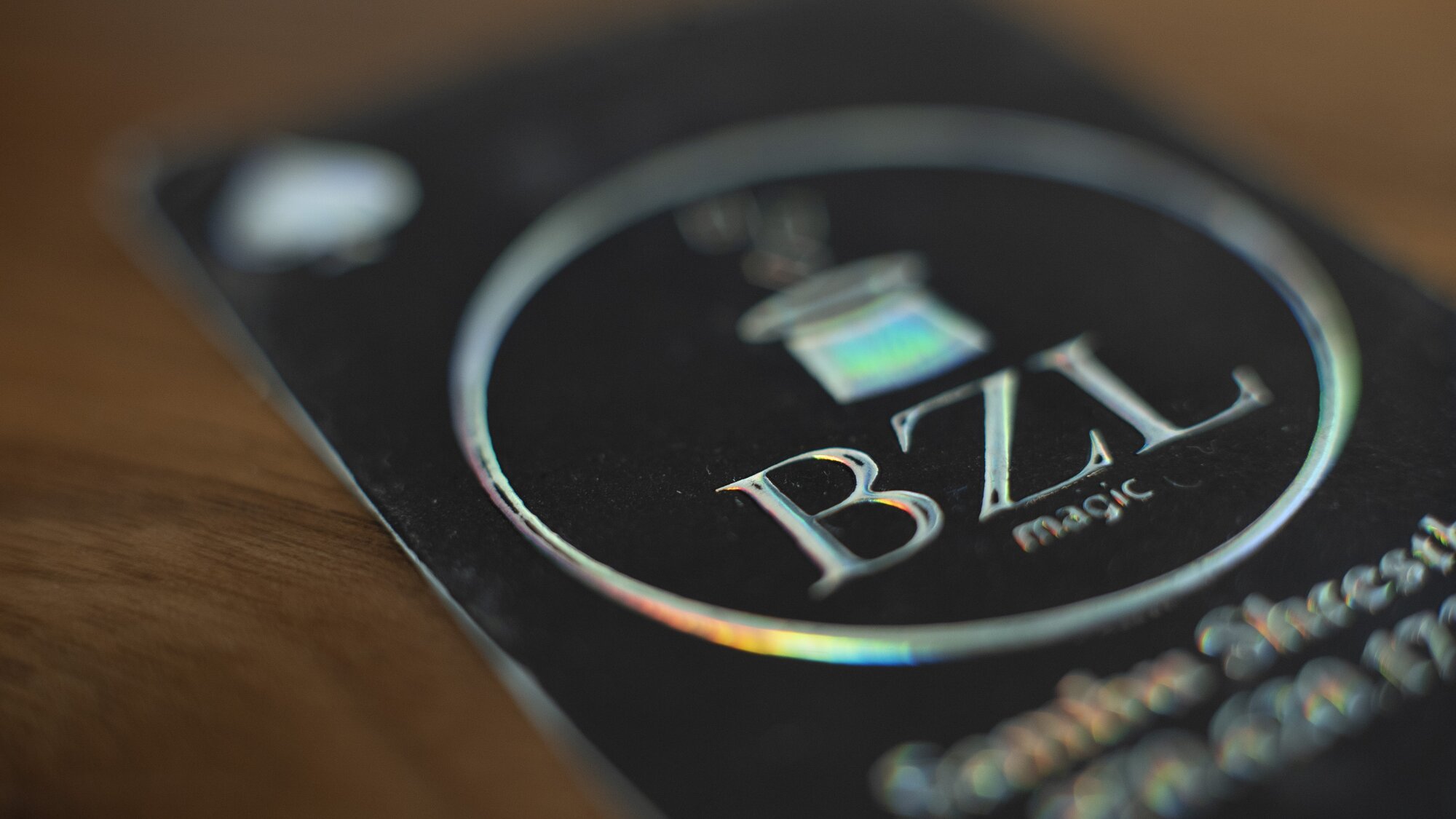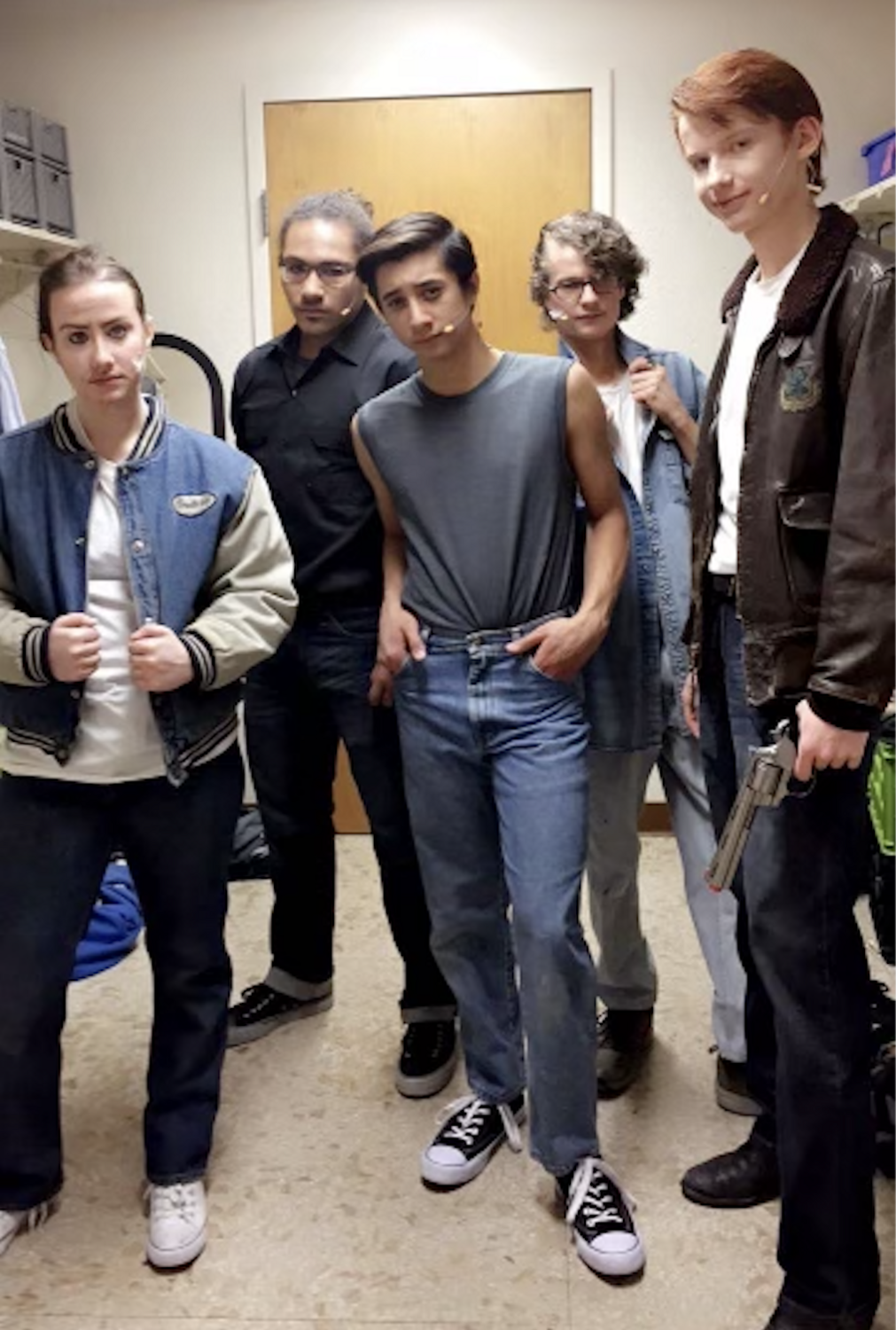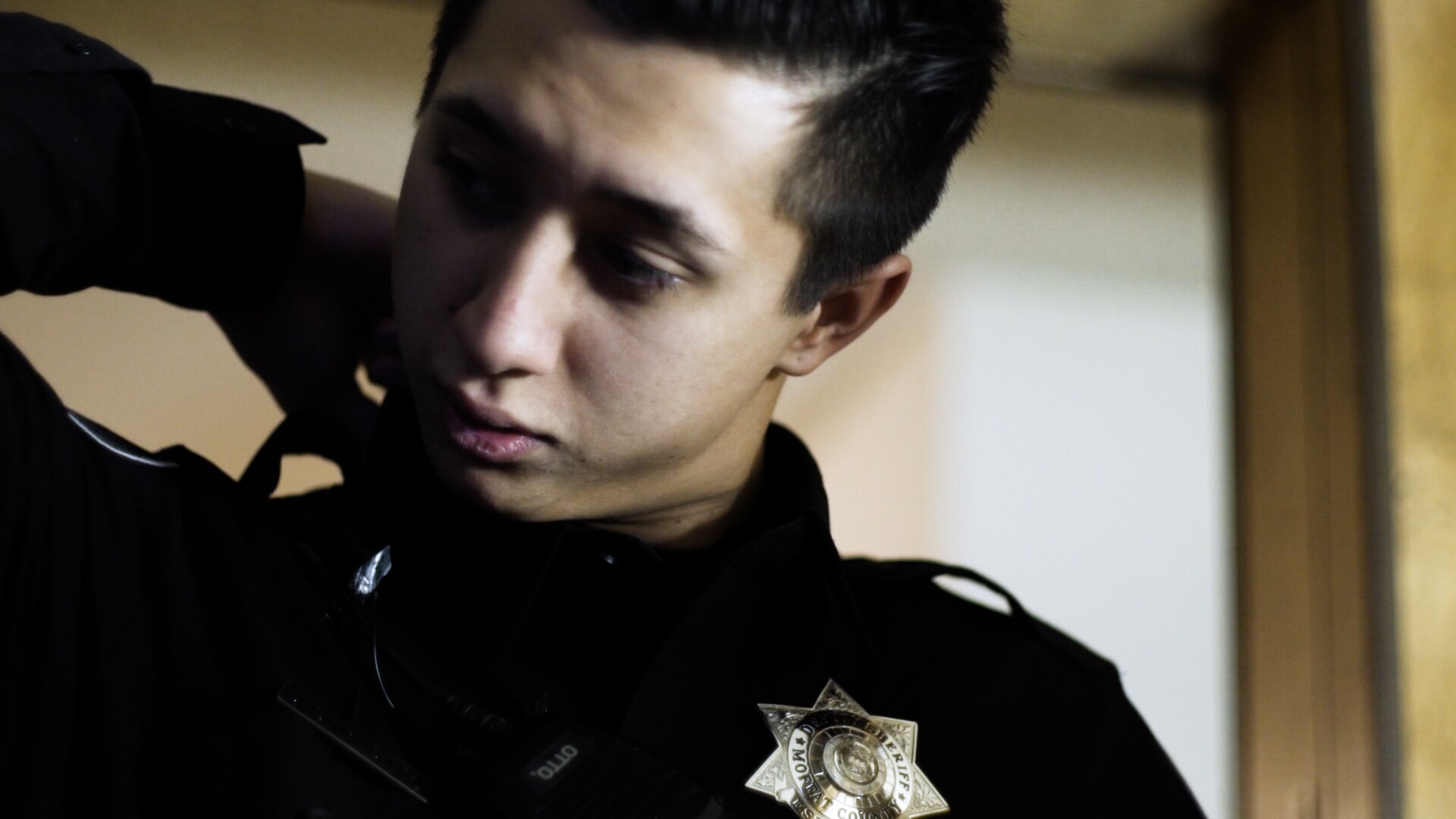A Craig detention deputy uses magic to inspire others

CRAIG, Colo. — Create a picture in your mind of the town of Craig, Colorado.
Driving through the middle of town, you see signs that say "We Support Coal." Splashes of orange banners welcome hunters to the elk hunting capital of the world. To the south, billowing puffs of steam rise sky-high from the Craig Station, a coal-powered energy-generating plant. Local kids call it "the cloud factory."
Now, you are at a coffee shop in downtown Craig that would meet the standards of any city-dwelling coffee drinker. At the cash register is a stack of business cards. One of the cards says "BZL Magic" on it. The name of the magician is Sambu Shrestha. This presents the question: How does a magician with a Nepalese surname fit into this hunting and coal-producing town?
Craig is home with a capital "H"
“Craig is where home started after home wasn't really stable,” said Sambu Shrestha, 21, a magician who is in the process of becoming an officer for the Craig Police Department.
Shrestha (pronounced shuh-rest-uh) is named after his Nepalese father who became increasingly uninvolved in his child’s life, ultimately moving back to Nepal leaving Shrestha’s mom to do the heavy lifting.
When Shrestha was 6 years old, his mom decided they should move from Grand Junction to Craig to live with an older daughter who had just had a baby. His mom could help with the grandbaby and they could combine what resources they had which wasn’t much.
Growing up in and out of poverty, Shrestha wasn’t immune to the effects and proximity of drugs and crime; both of which would ultimately sting some members of his family.
When times were good, they could afford to rent a house in downtown Craig. When times were bad, they were lucky to have an apartment or trailer home — often packed with more people than the space was made to accommodate.
“Childhood was not easy,” said Shrestha. “There were times that were worse than others, and there were times that put my family through the wringer and it felt like bad luck just followed us everywhere.” He continued, “Whether that was going through foster care or, you know, sleeping at the school, it was just hard.”
There were many nights he didn’t know where home was going to be — a serious consideration in one of the coldest cities in Colorado.
When you live in poverty, there isn’t any wiggle room; no room for failure. But failure is inescapable and can feel like the whole world is against you. Shrestha said, “[Back then] If I didn't have bad luck, I wouldn't have any luck at all.”
When asked to tell stories from childhood, Shrestha always wraps up each statement on a positive note, “But we made it through … it all worked out … we are stronger for it.” He just won’t dwell on the bad. On the rare occasion that Shrestha gives detailed accounts, people are shell-shocked and ask with dead seriousness if he’s OK, as an adult. He is often shocked by their response. But we all have our own normal. Shrestha’s normal had a lot more visits from the police in it.
A good investment
Through all the difficulties, Shrestha’s mom genuinely supported his performative spirit. When Shrestha was in the fourth grade the magician Criss Angel was in the spotlight on TV specials and night shows. A magic kit was marketed donning Angel and his trademark ‘emo’ haircut. The kit wasn’t more unique than any other kids' magic set. But it was a perfect introduction to magic for kids like Shrestha. Catching his mom on a good money day, she bought the magic set for him at the local Walgreens.

Shrestha said, “I looked at the box and was like, it says, there's over 150 things … I would go to the stuff that wasn't necessarily self-working that required a little bit of skill.”
Working harder to pull off the more complicated tricks, he started performing them for his friends.
Shrestha remembers, “All my friends who had the same exact [magic kit] as I did were impressed and like, ‘Whoa, that's crazy!’ How did you do that?’ I was like, if I can do this and impress them with what they know, imagine how much farther I can take it if I can do what they don't?”
Reflecting on that magic set, Shrestha said, “I would say that was the best investment that we didn't know we were making.”
Boozle my woozle!
By the time Shrestha was in middle school, it had become commonplace for nearly every kid to have a cell phone.
Shrestha’s mom recalls, “I was not buying him a cell phone yet. Sorry, I couldn't afford a cell phone … so I had picked up some walkie-talkies at a yard sale, and they were decent, really nice walkie-talkies. And [Sambu] was like, ‘I want to take one to school!’ And so we just decided that was going to be our communication since he didn't have his own [cell phone].

When Shrestha was little, his mom morphed ‘Sambu’ into ‘Sam-boozle’. Eventually dropping ‘Sam’ he became ‘Boozle’. When calling out for him because she didn’t know where he was, she would yell, “Oh, Boozle, my Woozle!” Think Julia Child when you hear the voice. This wasn’t a middle name, you’re in trouble sort of thing. It was a term of endearment.
On one occasion in the middle of class, to Shrestha’s horror, the whole class heard his mother’s voice loud and clear coming from his backpack, “Oh, Boozle, my Woozle!”
The walkie-talkie was confiscated. Explanations were made. Compassion prevailed.
Shrestha was already well-known for his tricks and this moment would permanently connect the name ‘Boozle’ to his magic. And this explains ‘BZL’ on his business cards, short for “Boozle”.
An outsider on the inside

In spite of his uncertain home life, Shrestha was heavily involved in high school. He was popular with staff and students alike. He loved performance of any kind. He was the school mascot. He was in speech and debate. He performed in every theater production he could.
On the exterior, Shrestha looked like a star kid from a solid middle-class family. The truth? He lived in a home packed with too many people, dealing with their own difficulties. It was just too much for Shrestha.
Shrestha tells the story, “I was in theater, [I had] done all the plays. I had been in the musicals. We'd stay really late sometimes and one night I was like, I'm just going to stay here [at the high school]. I'm just going to go upstairs and I'll find a spot. I just can't go home. I'm not going home tonight”
He found a beam in a dead-end hall and snuggled up behind it. He said he remembers that first night he slept in the school, “I was just sleeping and the janitor was vacuuming up on the third floor, and I was like, ‘Oh, no! How did I not think of this?’”
The janitor pushed and pulled the vacuum inching closer to Shrestha, but on that particular night, she didn’t feel like overachieving, stopped at the opposite side of the beam, and called it good.
The next day, Shrestha woke up, went to school, and did it all over again. It was a safe place where he didn’t feel like he had to be the adult he was being forced to be at home. He could just be a kid.
Shrestha was literally from the ‘wrong side of town’, very involved in school theater, playing the part of Pony Boy from The Outsiders, and secretly sleeping in the school because home life was just too much.
From Pony Boy to police officer
Already in the practice of caring for himself, adulthood came more quickly for Shrestha. The only world he knew was Craig; the options for future employment were few, and the call for magicians was limited. He took some classes for hairdressing at the community college and that didn’t fit.
With no external prodding, Shrestha just started to feel a tug toward law enforcement. To explain his attraction to this public service, he has two answers.
He said, “A lot of my family, you know, didn't really grow up on the right side of the law … I did witness [some of] my family get taken away in handcuffs a couple of times. Whether it was for theft or for drugs or who knows what … every time they went away with a police officer when they came back they were better. They were healthy. They were, you know, in a better mindset, it seemed like.”

Shrestha’s second answer he calls his ‘Sambu answer’. He said, “It is the closest thing to being a real-life superhero, and being able to help people the way that those officers helped me by helping my family was awesome, and that gives me inspiration every day.”
Shrestha has been a detention deputy for the Sheriff's office working directly with inmates, feeding them, and taking their medications to them. He’s seen both sides of the law from childhood. He’s young but he’s not naive. Nor is he cynical. He has genuine compassion for people on all sides of crimes; the victim, but also the criminal.
Shrestha said, “There's people that come in and they're in some of the worst days of their life. Sometimes they just made a bad decision. But I'm there for them. I talk to them, I get them comfortable. I build up that rapport and then I show them magic and just give them something to think about other than ‘I'm in jail’.”
With this streetwise compassion, and literally a few tricks up his sleeve, Shrestha is heading to Brighton, Colorado to attend the Police Academy. The Academy is a 6-month program. In exchange for a two-year commitment to serve the town of Craig, the police department is paying for Shrestha to go through the academy. He’ll be able to come home most weekends to be with his wife, Fiona. It’s an early stress test of the difficulty of being married to a police officer. But, Shrestha says there is an amazing sense of family at the department. They are concerned about him, and his wife, and are making sure he gets the opportunity to stay connected with her through the months he’ll be gone.
Asked if he is compromising the magician, the performer, by becoming a police officer, Shrestha confidently answers, “I don't feel like it's a compromise. I don't feel like it's a burden or I'm letting my magician self down. I feel like I am living up to the best potential that I can as a police officer who is a magician, or in this case, as a magician who is going to be a police officer.”
Cullen Purser is a multimedia journalist at Rocky Mountain PBS. You can reach him at cullenpurser@rmpbs.org.
